Hyundai Staria vs Toyota Proace City - Differences and prices compared
Costs and Efficiency:
Looking at overall running costs, both models reveal some interesting differences in everyday economy.
Toyota Proace City has a convincingly advantage in terms of price – it starts at 20800 £, while the Hyundai Staria costs 42400 £. That’s a price difference of around 21630 £.
Fuel consumption also shows a difference: Toyota Proace City manages with 5.30 L and is therefore significantly more efficient than the Hyundai Staria with 7.60 L. The difference is about 2.30 L per 100 km.
Engine and Performance:
Power, torque and acceleration are the classic benchmarks for car enthusiasts – and here, some clear differences start to show.
When it comes to engine power, the Hyundai Staria has a clearly perceptible edge – offering 225 HP compared to 136 HP. That’s roughly 89 HP more horsepower.
In acceleration from 0 to 100 km/h, the Hyundai Staria is to a small extent quicker – completing the sprint in 10.20 s, while the Toyota Proace City takes 11.50 s. That’s about 1.30 s faster.
In terms of top speed, the Toyota Proace City performs to a small extent better – reaching 186 km/h, while the Hyundai Staria tops out at 167 km/h. The difference is around 19 km/h.
There’s also a difference in torque: Hyundai Staria pulls to a small extent stronger with 367 Nm compared to 300 Nm. That’s about 67 Nm difference.
Space and Everyday Use:
Whether family car or daily driver – which one offers more room, flexibility and comfort?
Seats: Hyundai Staria offers noticeable more seating capacity – 9 vs 7.
In curb weight, Toyota Proace City is convincingly lighter – 1366 kg compared to 2275 kg. The difference is around 909 kg.
In terms of boot space, the Toyota Proace City offers minimal more room – 912 L compared to 831 L. That’s a difference of about 81 L.
In maximum load capacity, the Toyota Proace City performs convincingly better – up to 2693 L, which is about 1390 L more than the Hyundai Staria.
When it comes to payload, Toyota Proace City somewhat takes the win – 869 kg compared to 775 kg. That’s a difference of about 94 kg.
Who wins the race?
The Toyota Proace City proves to be dominates this comparison and therefore becomes our DriveDuel Champion!
Toyota Proace City is the better all-rounder in this comparison.
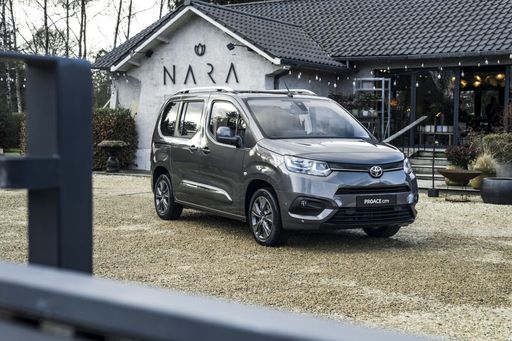 @ Toyota Motor Corporation
@ Toyota Motor Corporation
Toyota Proace City
Costs and Consumption
View detailed analysis
Engine and Performance
View detailed analysis
Dimensions and Body
View detailed analysis
Hyundai Staria
Hyundai Staria looks like a friendly spaceship, its sweeping glass and soft edges turning a people‑mover into a design statement that actually gets noticed. Inside it's airy and practical — perfect for families or anyone who likes travelling in comfort and style, with enough flexibility to swallow luggage and weekend plans without drama.
details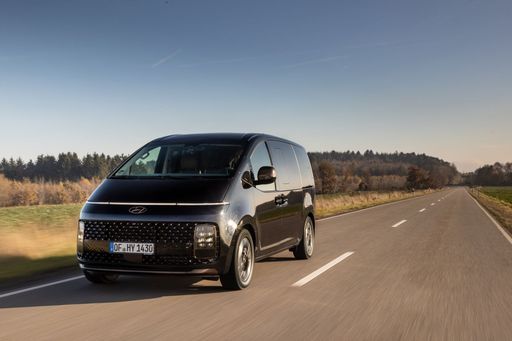 @ Hyundai Motor Company
@ Hyundai Motor Company
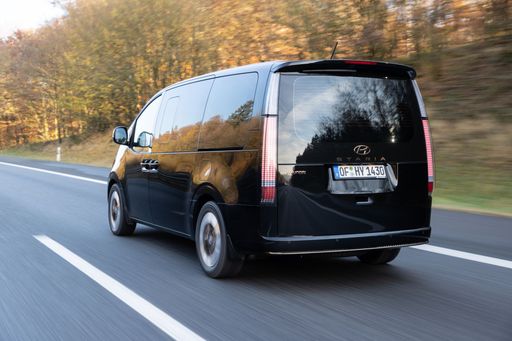 @ Hyundai Motor Company
@ Hyundai Motor Company
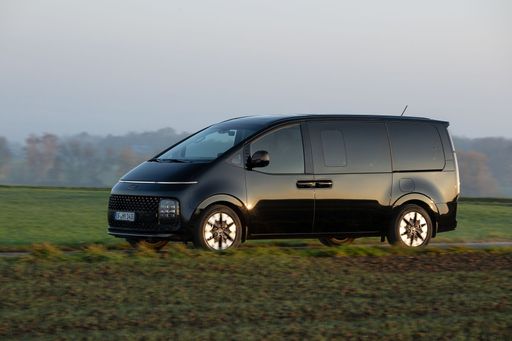 @ Hyundai Motor Company
@ Hyundai Motor Company
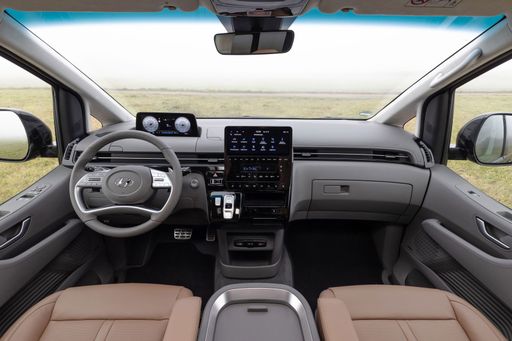 @ Hyundai Motor Company
@ Hyundai Motor Company
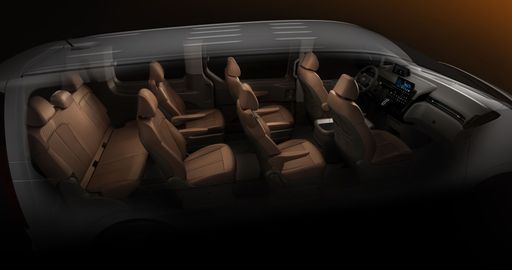 @ Hyundai Motor Company
@ Hyundai Motor Company
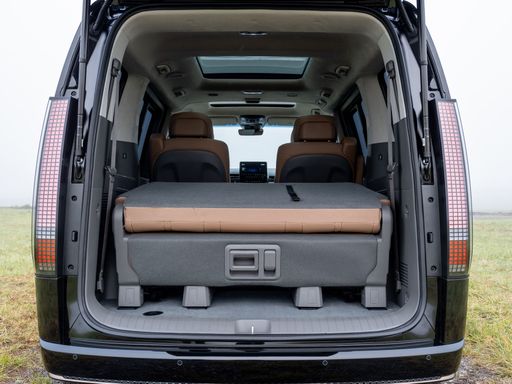 @ Hyundai Motor Company
@ Hyundai Motor Company
Toyota Proace City
The Toyota Proace City is a clever compact workhorse that blends van practicality with passenger comfort, turning daily deliveries or weekend DIY runs into a surprisingly civilised affair. It won't set your pulse racing, but its easy driving manners, flexible interior and low-hassle ownership make it a smart pick for buyers who value usefulness over flash.
details @ Toyota Motor Corporation
@ Toyota Motor Corporation
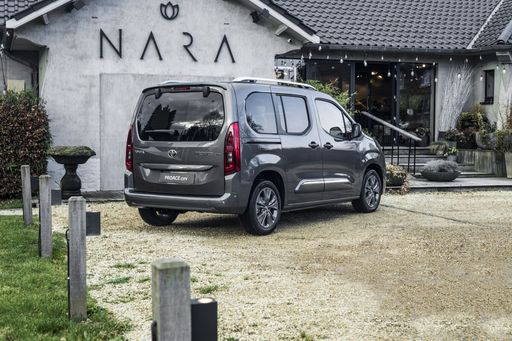 @ Toyota Motor Corporation
@ Toyota Motor Corporation
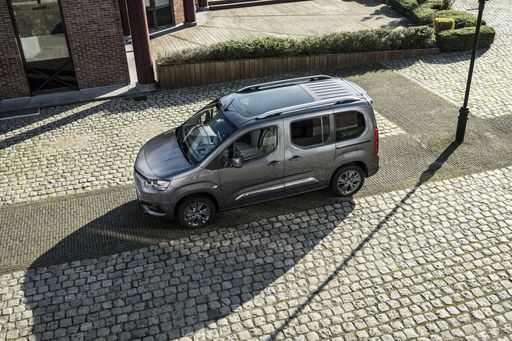 @ Toyota Motor Corporation
@ Toyota Motor Corporation
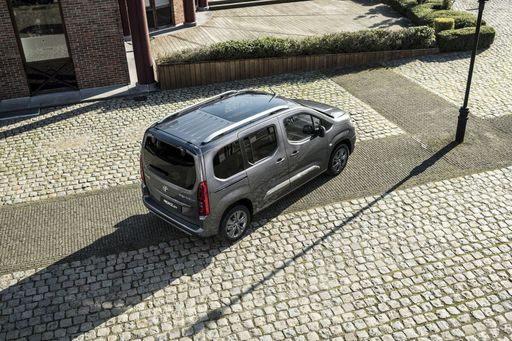 @ Toyota Motor Corporation
@ Toyota Motor Corporation
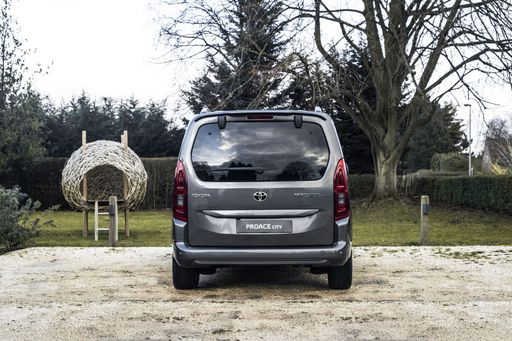 @ Toyota Motor Corporation
@ Toyota Motor Corporation
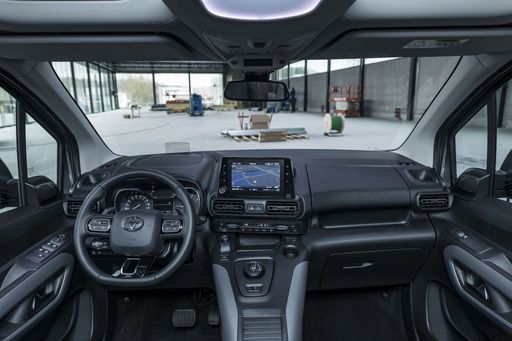 @ Toyota Motor Corporation
@ Toyota Motor Corporation
 @ Hyundai Motor Company
@ Hyundai Motor Company
|
 @ Toyota Motor Corporation
@ Toyota Motor Corporation
|
|
|
|
Costs and Consumption |
|
|---|---|
|
Price
42400 - 50500 £
|
Price
20800 - 44100 £
|
|
Consumption L/100km
7.60 L
|
Consumption L/100km
5.3 - 6.3 L
|
|
Consumption kWh/100km
-
|
Consumption kWh/100km
18.10 kWh
|
|
Electric Range
-
|
Electric Range
343 km
|
|
Battery Capacity
-
|
Battery Capacity
-
|
|
co2
172 g/km
|
co2
0 - 146 g/km
|
|
Fuel tank capacity
65 L
|
Fuel tank capacity
50 - 61 L
|
Dimensions and Body |
|
|---|---|
|
Body Type
Bus
|
Body Type
High Roof Estate
|
|
Seats
7 - 9
|
Seats
5 - 7
|
|
Doors
5
|
Doors
4 - 5
|
|
Curb weight
2275 - 2345 kg
|
Curb weight
1366 - 1664 kg
|
|
Trunk capacity
117 - 831 L
|
Trunk capacity
322 - 912 L
|
|
Length
5253 mm
|
Length
4401 - 4751 mm
|
|
Width
1997 mm
|
Width
1848 mm
|
|
Height
1990 mm
|
Height
1812 - 1818 mm
|
|
Max trunk capacity
431 - 1303 L
|
Max trunk capacity
2126 - 2693 L
|
|
Payload
605 - 775 kg
|
Payload
525 - 869 kg
|
Engine and Performance |
|
|---|---|
|
Engine Type
Full Hybrid
|
Engine Type
Petrol, Diesel, Electric
|
|
Transmission
Automatic
|
Transmission
Manuel, Automatic
|
|
Transmission Detail
Automatic Gearbox
|
Transmission Detail
Manual Gearbox, Reduction Gearbox, Automatic Gearbox
|
|
Drive Type
Front-Wheel Drive
|
Drive Type
Front-Wheel Drive
|
|
Power HP
225 HP
|
Power HP
102 - 136 HP
|
|
Acceleration 0-100km/h
10.20 s
|
Acceleration 0-100km/h
11.5 - 13.2 s
|
|
Max Speed
167 km/h
|
Max Speed
135 - 186 km/h
|
|
Torque
367 Nm
|
Torque
205 - 300 Nm
|
|
Number of Cylinders
4
|
Number of Cylinders
3 - 4
|
|
Power kW
165 kW
|
Power kW
75 - 100 kW
|
|
Engine capacity
1598 cm3
|
Engine capacity
1199 - 1499 cm3
|
General |
|
|---|---|
|
Model Year
2024
|
Model Year
2024 - 2025
|
|
CO2 Efficiency Class
F
|
CO2 Efficiency Class
E, A
|
|
Brand
Hyundai
|
Brand
Toyota
|
What drive types are available for the Hyundai Staria?
The Hyundai Staria is available as Front-Wheel Drive.
The prices and data displayed are estimates based on German list prices and may vary by country. This information is not legally binding.
